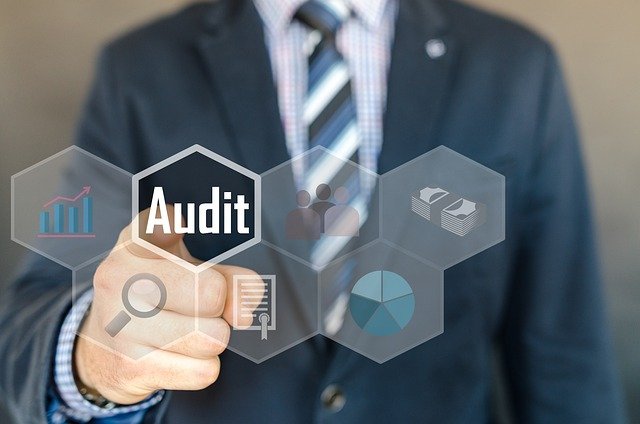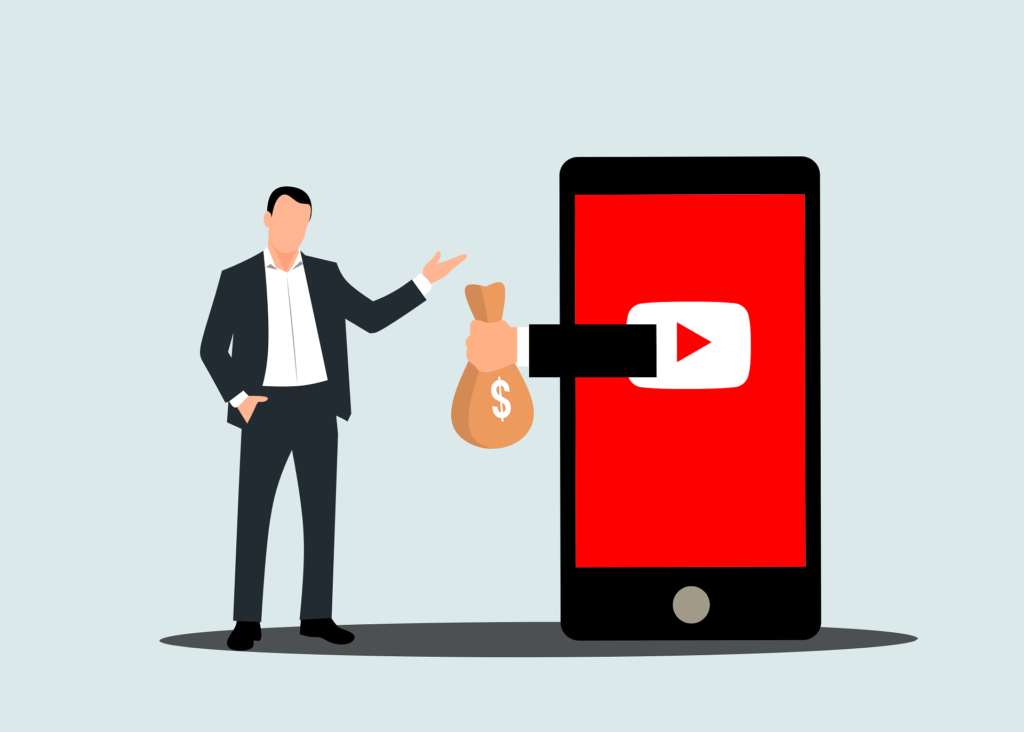- 1. Will Event Marketing Budgets Increase in 2024?
- 2. Do Live Events Provide a Positive ROI?
- 3. Will Hybrid Events Be Important in 2024?
- 4. Do Events Influence Purchase Decisions?
- 5. How Many Event Planners Use Event Management Software?
- 6. Will Virtual Events Continue to Grow in 2024?
- 7. How Important is Data Analytics in Event Marketing?
- 8. Are Events Effective for Lead Generation?
- 9. Does Event Technology Enhance Attendee Engagement?
- 10. What is the Primary Goal of Event Marketers?
- 11. Are Events Essential to Marketing Strategies?
- 12. How Do Event Marketers Use Social Media?
- 13. What Do Event Marketers Value Most About Events?
- 14. What is the Top Priority for Event Planners?
- 15. Are Businesses Increasing Investment in Event Technology?
- 16. How Do Virtual Events Impact Engagement?
- 17. How Do Events Influence Brand Perception?
- 18. How Common is the Use of Mobile Event Apps?
- 19. What is the Most Effective Promotion Tool for Events?
- 20. Do Large Businesses Host Their Own Events?
- 21. How Do Event Organizers Measure Success?
- 22. Is Measuring Event ROI Challenging?
- 23. Does Personalization Drive Higher Engagement at Events?
- 24. Are Businesses Increasing the Number of Events They Host?
- 25. Do Attendees Prefer Hybrid Events?
- 26. Do Events Provide Opportunities for Customer Education?
- 27. How Do Event Professionals Boost Audience Engagement?
- 28. How Crucial is Social Media Integration for Events?
- 29. Are Attendance Rates Higher for Virtual Events?
- 30. How Do Event Planners Use Feedback to Improve Future Events?
- Conclusion
- We got all the latest Marketing Stats here:
Event marketing has evolved significantly, especially in the wake of global changes and advancements in technology. As we look ahead to 2024, understanding the latest trends and statistics is essential for crafting effective event marketing strategies. This article will delve into key event marketing statistics for 2024, providing insights and actionable tips to help you stay ahead of the curve and make the most of your event marketing efforts.
1. Will Event Marketing Budgets Increase in 2024?

85% of event marketers plan to increase their event marketing budgets in 2024. This indicates a strong confidence in the power of events to drive business goals.
With more budget allocation, marketers can invest in better venues, advanced technology, and enhanced attendee experiences. This increase in funding underscores the importance of events in the overall marketing strategy. Businesses should plan their budget meticulously, ensuring they allocate funds to areas that will maximize impact, such as engaging speakers, high-quality content, and immersive experiences.
2. Do Live Events Provide a Positive ROI?
78% of businesses say live events provide a positive ROI. This statistic highlights the financial effectiveness of live events in achieving business objectives.
Live events offer unique opportunities for face-to-face interactions, which can build stronger relationships and trust with potential clients. They also provide a platform for demonstrating products and services in a tangible way. To maximize ROI, businesses should focus on creating valuable and memorable experiences for attendees, ensuring that every aspect of the event is aligned with their goals.
3. Will Hybrid Events Be Important in 2024?
67% of event marketers believe that hybrid events will be a key part of their strategy. Hybrid events, which combine in-person and virtual elements, offer flexibility and increased reach.
Hybrid events cater to a broader audience by allowing those who cannot attend in person to participate virtually. This format can also enhance engagement through interactive elements that can be experienced both onsite and online. To effectively implement hybrid events, marketers should invest in robust technology platforms that support seamless integration and engagement across both formats.
4. Do Events Influence Purchase Decisions?
92% of attendees say they are more likely to purchase a product or service after participating in a brand’s event. This statistic underscores the persuasive power of events in the customer journey.
Events allow brands to create immersive experiences that showcase their products and services in a compelling way. By providing hands-on demonstrations and opportunities for direct interaction with brand representatives, events can significantly influence purchase decisions. Brands should focus on delivering high-value content and personalized experiences to make a lasting impression on attendees.
5. How Many Event Planners Use Event Management Software?
70% of event planners use event management software for organizing events. This widespread adoption reflects the need for efficient and streamlined event planning processes.
Event management software can handle various aspects of event planning, from registration and ticketing to attendee management and analytics. Using such tools can save time, reduce errors, and enhance the overall attendee experience. Event planners should select software that fits their specific needs and integrates well with other tools in their marketing stack.
6. Will Virtual Events Continue to Grow in 2024?
63% of marketers plan to host more virtual events in 2024. This trend highlights the continued relevance and appeal of virtual events.
Virtual events offer numerous advantages, including cost savings, accessibility, and the ability to reach a global audience. They also provide valuable data insights that can be used to improve future events. To ensure success, marketers should focus on creating engaging virtual experiences that replicate the benefits of in-person events, such as networking opportunities and interactive sessions.
7. How Important is Data Analytics in Event Marketing?
88% of event organizers say that data analytics is crucial for measuring event success. This statistic highlights the growing importance of data-driven decision-making in event marketing.
Data analytics can provide insights into attendee behavior, engagement levels, and overall event performance. By analyzing this data, marketers can identify what worked well and what needs improvement, allowing them to optimize future events. Investing in analytics tools and expertise is essential for making informed decisions and demonstrating the value of event marketing efforts.
8. Are Events Effective for Lead Generation?
73% of businesses say that events are better for lead generation than other marketing channels. This highlights the unique potential of events to attract and engage high-quality leads.
Events provide an opportunity for direct interaction with potential customers, allowing for personalized communication and relationship building. They also create a focused environment where attendees are more receptive to marketing messages. To maximize lead generation, businesses should design events that facilitate meaningful interactions and follow up promptly with leads after the event.
9. Does Event Technology Enhance Attendee Engagement?
81% of event marketers agree that event technology enhances attendee engagement. This statistic underscores the importance of incorporating technology into event planning and execution.
Event technology, such as mobile apps, virtual reality, and live polling, can create more interactive and engaging experiences for attendees. These tools can also provide valuable data on attendee preferences and behavior. To enhance engagement, marketers should explore various technologies and integrate them into their events in a way that adds value to the attendee experience.
10. What is the Primary Goal of Event Marketers?

69% of event marketers say that building brand awareness is the primary goal of their events. This highlights the role of events in increasing visibility and recognition for brands.
Events offer a powerful platform for showcasing a brand’s values, products, and services to a targeted audience. By creating memorable and impactful experiences, brands can enhance their reputation and stand out in a crowded market. Marketers should focus on delivering consistent and cohesive brand messaging throughout the event to reinforce brand identity.
11. Are Events Essential to Marketing Strategies?
94% of event professionals say that events are essential to their marketing strategy. This near-universal agreement underscores the critical role that events play in comprehensive marketing plans.
Events offer unique opportunities for direct engagement, networking, and brand-building that are difficult to replicate through other marketing channels. They allow for real-time interaction and feedback, creating a dynamic environment for fostering relationships and driving brand loyalty. Businesses should integrate events into their broader marketing strategies to enhance their overall effectiveness and achieve their marketing goals.
12. How Do Event Marketers Use Social Media?
58% of event marketers use social media to promote events. Social media platforms are crucial for reaching and engaging potential attendees.
Social media allows for targeted promotion, real-time updates, and interactive engagement with your audience. By leveraging platforms like Facebook, Instagram, Twitter, and LinkedIn, event marketers can increase visibility, generate buzz, and drive registrations. It’s essential to create compelling content, use relevant hashtags, and engage with followers to maximize the impact of social media promotion.
13. What Do Event Marketers Value Most About Events?
76% of event marketers believe that networking is the most valuable aspect of events. Networking opportunities are a key draw for both attendees and sponsors.
Events provide a unique environment for meeting industry peers, potential clients, and partners. These interactions can lead to valuable business relationships, collaborations, and opportunities. To facilitate networking, event organizers should design spaces and activities that encourage interaction, such as networking lounges, breakout sessions, and social events.
14. What is the Top Priority for Event Planners?
84% of event planners consider attendee experience as their top priority. Ensuring a positive and memorable experience for attendees is crucial for the success of any event.
A great attendee experience can lead to higher satisfaction, increased engagement, and positive word-of-mouth. Event planners should focus on every aspect of the event, from seamless registration processes and engaging content to comfortable venues and high-quality catering. Regularly gathering and acting on attendee feedback can help continuously improve the experience.
15. Are Businesses Increasing Investment in Event Technology?
65% of businesses plan to increase their investment in event technology. This planned increase reflects the growing importance of technology in enhancing event experiences and outcomes.
Event technology can streamline operations, enhance engagement, and provide valuable data insights. Businesses should explore various technologies, such as event management software, mobile apps, and virtual platforms, to find the best solutions for their needs. Investing in the right technology can help create more efficient, engaging, and impactful events.

16. How Do Virtual Events Impact Engagement?
79% of event marketers report improved engagement from virtual event attendees. Virtual events can offer high levels of interaction and participation when designed effectively.
Virtual events eliminate geographical barriers, allowing more people to attend and engage. Features like live Q&A sessions, chat rooms, and interactive polls can enhance participation and make virtual events more dynamic. To maximize engagement, marketers should focus on creating interactive and immersive virtual experiences that replicate the benefits of in-person events.
17. How Do Events Influence Brand Perception?
91% of attendees say they have a more positive perception of a brand after attending an event. This statistic highlights the power of events in shaping and enhancing brand image.
Events offer a platform for brands to showcase their values, products, and expertise in a tangible way. By creating meaningful and memorable experiences, brands can foster positive associations and build stronger connections with their audience. Focusing on delivering high-quality content and interactions can help reinforce a positive brand image.
18. How Common is the Use of Mobile Event Apps?
82% of event professionals use mobile event apps to enhance the attendee experience. Mobile apps are a valuable tool for providing information, facilitating interaction, and collecting feedback.
Mobile event apps can offer features like schedules, speaker bios, maps, networking opportunities, and real-time updates. These apps can improve convenience and engagement for attendees, making the event experience more enjoyable and efficient. Event organizers should ensure their apps are user-friendly and provide clear value to encourage adoption and usage.
19. What is the Most Effective Promotion Tool for Events?
60% of event marketers say email marketing is their most effective promotion tool. Email remains a powerful channel for reaching and engaging potential attendees.
Email marketing allows for personalized communication, detailed information sharing, and direct calls to action. By segmenting their email lists and tailoring messages to specific audience segments, marketers can increase open rates, click-through rates, and registrations. It’s important to craft compelling subject lines, provide valuable content, and use clear calls to action to maximize the effectiveness of email campaigns.
20. Do Large Businesses Host Their Own Events?

85% of businesses with over $1 billion in revenue host their own events. This statistic underscores the importance of events for large enterprises in achieving their marketing and business objectives.
Hosting events allows large businesses to showcase their products, network with key stakeholders, and reinforce their market position. These events can range from product launches and conferences to trade shows and customer appreciation events. Large businesses should leverage their resources to create high-impact events that align with their strategic goals and enhance their brand presence.
21. How Do Event Organizers Measure Success?
72% of event organizers measure the success of their events based on attendee satisfaction. This focus on satisfaction underscores the importance of delivering a positive experience for attendees.
Attendee satisfaction can be gauged through surveys, feedback forms, and direct interactions during and after the event. High levels of satisfaction can lead to repeat attendance, positive word-of-mouth, and stronger brand loyalty. Event organizers should prioritize creating engaging, valuable, and enjoyable experiences for their attendees to ensure high satisfaction rates.
22. Is Measuring Event ROI Challenging?
80% of event planners find it challenging to measure event ROI accurately. This challenge highlights the complexity of quantifying the impact of events on business objectives.
Measuring event ROI involves tracking various metrics, such as attendee engagement, lead generation, and conversion rates, and attributing these outcomes to the event. Advanced analytics tools can help in this process, but it often requires a comprehensive approach that includes both quantitative and qualitative data. Event planners should develop clear objectives and KPIs before the event to better assess its success.
23. Does Personalization Drive Higher Engagement at Events?
89% of event marketers agree that personalized event experiences drive higher engagement. Personalization is key to creating relevant and memorable interactions for attendees.
Personalized experiences can include tailored content, customized agendas, and targeted networking opportunities based on attendee preferences and behaviors. By leveraging data and technology, event organizers can create personalized journeys that enhance engagement and satisfaction. Focusing on personalization can lead to deeper connections with attendees and better overall event outcomes.
24. Are Businesses Increasing the Number of Events They Host?
64% of businesses plan to increase the number of events they host in 2024. This planned increase reflects the value that businesses place on events as a marketing and engagement tool.
Hosting more events provides additional opportunities to connect with customers, generate leads, and build brand awareness. Whether through virtual, hybrid, or in-person formats, increasing the number of events can help businesses reach broader audiences and achieve their marketing objectives. Businesses should ensure they have the resources and strategies in place to support this expansion.
25. Do Attendees Prefer Hybrid Events?
77% of event attendees prefer hybrid events that combine in-person and virtual elements. This preference highlights the demand for flexible event formats that cater to diverse needs.
Hybrid events offer the best of both worlds, providing the personal interaction of in-person events and the accessibility of virtual events. They allow attendees to choose how they want to participate, increasing overall attendance and engagement. Event organizers should invest in technology and planning to ensure seamless integration of both formats and create cohesive experiences for all attendees.
26. Do Events Provide Opportunities for Customer Education?

83% of marketers believe that events provide valuable opportunities for customer education. Educating customers through events can build trust and demonstrate expertise.
Events can include workshops, seminars, product demonstrations, and keynote speeches that provide valuable insights and knowledge to attendees. By positioning themselves as thought leaders, businesses can strengthen their relationships with customers and enhance their brand reputation. Focusing on educational content can also help attract a more engaged and motivated audience.
27. How Do Event Professionals Boost Audience Engagement?
68% of event professionals use live polling to boost audience engagement during events. Interactive elements like live polling can significantly enhance attendee participation and interest.
Live polling allows attendees to share their opinions, ask questions, and engage with the content in real-time. This interactive feature can make sessions more dynamic and responsive to the audience’s interests. Event organizers should incorporate live polling and other interactive tools to create more engaging and participatory experiences.
28. How Crucial is Social Media Integration for Events?
90% of event organizers say that integrating social media into their event strategy is crucial. Social media can amplify event reach and engagement before, during, and after the event.
Integrating social media allows for real-time updates, live streaming, and interactive discussions, which can enhance the overall event experience. It also provides a platform for attendees to share their experiences, extending the event’s reach and impact. Event organizers should develop a comprehensive social media strategy that includes pre-event promotion, live updates, and post-event engagement.
29. Are Attendance Rates Higher for Virtual Events?
75% of event marketers report higher attendance rates for virtual events compared to in-person events. This trend reflects the convenience and accessibility of virtual events for attendees.
Virtual events eliminate geographical barriers, making it easier for people to attend from anywhere in the world. They also offer flexibility in terms of timing and participation. To capitalize on this trend, event organizers should focus on creating high-quality virtual experiences that are engaging and interactive, ensuring that attendees get value from their participation.
30. How Do Event Planners Use Feedback to Improve Future Events?
87% of event planners use event feedback to improve future events. Gathering and acting on feedback is essential for continuous improvement and success.
Feedback can be collected through surveys, direct conversations, and social media interactions. It provides valuable insights into what worked well and what could be improved. By analyzing this feedback, event planners can make informed decisions and adjustments for future events, enhancing the overall experience and achieving better results.
Conclusion
Event marketing remains a powerful tool for engaging audiences, building brand awareness, and driving business growth. As we move into 2024, these statistics highlight the key trends and insights that will shape the future of event marketing. By understanding and leveraging these trends, businesses can create more effective and impactful events, delivering value to both their audiences and their organizations.
We got all the latest Marketing Stats here:
Read Next
- 15+ Best Digital Asset Management Software to Transform Your Workflow
- The Ultimate Guide to Digital Asset Management
- 23+ Ultimate Customer Support Tools to Empower Your Business
- Data Processing Agreement: An International Perspective
- Best SEO Tools in 11 Categories to Elevate Your SEO





















Comments are closed.